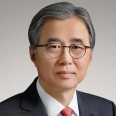U.S. Congressman Alexander Mooney and other members of the Freedom Caucus in the Republican Party recently introduced the ‘Allied Burden Sharing Report Act’ to the House of Representatives. The bill would require the Department of Defense to annually submit a report to Congress on “allied contributions to the common defense.” It calls for key U.S. allies such as South Korea, Japan, Australia, and NATO to increase their defense burden-sharing spending but this raises concerns that it may undermine the spirit of alliances based on “mutual” defense treaties.
President Trump, who judged U.S. allies on a financial basis rather than from a diplomatic and security perspective, frequently complained that allies did not contribute their fair share to defense costs. According to a January 2019 New York Times article, President Trump instructed his aides to draw up a plan to withdraw the United States from NATO. In August 2019, President Trump said, “Our allies take advantage of us far greater than our enemies,” and in an August 2020 interview with Fox News, he said that allies have been “ripping us off for years.” General James Mattis, who served as Defense Secretary during the Trump administration, assessed President Trump as “random, impulsive, and unthoughtful.”
The United States has long presented its own interests in the form of “values.” But when this values mindset is combined with unilateralism, the United States falls into the dogma that it alone is right and just. This makes it difficult to solve problems through cooperation and dialogue. The myriad problems facing the United States today are not because allies do not pay their fair share of defense costs and rely on the United States. Rather, they are due to the U.S. failure to properly re-assure its allies. The Trump administration’s unilateralist policies made NATO member states, the Middle East, and U.S. allies in the Indo-Pacific nervous. This gap has been filled by Russia’s Eurasianism and China’s Belt and Road Initiative.
The United States should ask itself questions. Did weakening trust in the United States encourage Russia’s invasion of Ukraine? If President Trump had re-assured U.S. allies in the Indo-Pacific, would China have pursued its Anti-Access/Area Denial (A2AD) strategy to deny U.S. access to key regional points? If the ROK-U.S. alliance had been strong during Trump’s presidency, would Kim Jong Un have sown discord in the alliance by calling for the termination of ROK-U.S. combined military exercises while continuing to have ambitions to advance his nuclear capabilities?
The ROK-U.S. alliance has evolved into a “Global Comprehensive Strategic Alliance” contributing to regional stability and peace since the 2010s. This was well reflected in the “Spirit of Camp David” announced during the ROK-U.S.-Japan trilateral summit this August. In 2019, when President Trump claimed that South Korea should increase its defense cost-sharing contribution five-fold to $5 billion, John Hamre, president of the Center for Strategic and International Studies, argued, “The United States Forces Korea (USFK) are not mercenaries who defend South Korea in return for money,” adding that “U.S. troops serve the purpose of defending the U.S.”
In a 2016 interview with the Washington Post during the presidential election campaign, Mr. Trump, who was the then Republican presidential candidate, argued that South Korea was not contributing enough to defense costs. He responded to the counterargument that Korea already covered 50 percent of the costs for U.S. Forces in Korea by saying, “Why not a 100 percent?” This overlooked the reciprocal benefits of the ROK-U.S. alliance for the United States.
During that period, South Korea and the United States reached an agreement to deploy the THAAD missile defense system on the Korean Peninsula, aiming to safeguard not only South Korea but also U.S. troops and nationals in South Korea. This decision faced strong opposition from China, leading to trade retaliation against South Korea and causing substantial harm, amounting to 21 trillion won (approximately $16 billion), primarily in the cultural and tourism sectors. The 21 trillion won in damages that South Korea suffered due to the THAAD deployment was twenty times greater than the 1.1 trillion won spent on defense cost-sharing in 2023.
Based on data from the Stockholm International Peace Research Institute (SIPRI), South Korea’s defense spending is 2.8% of its GDP based on 2021 figures, which is more than double the 1.1% by Japan. It is also significantly higher than key U.S. allies in Europe such as 2.2% by the United Kingdom, 1.9% by France, and 1.2% by Germany. Since the start of the ROK-U.S. Special Measures Agreement in 1991, South Korea’s defense cost-sharing contribution has surged from $150 million in 1991 to over $1 billion in 2023. This means that South Korea’s economic growth has been well reflected in higher defense cost-sharing.
South Korea and the United States must both make efforts to counter growing misunderstanding and biases regarding the ROK-U.S. alliance within the United States. The South Korean government and civil society should jointly intensify efforts to ensure proper recognition of South Korea’s contributions towards the ROK-U.S. alliance by expanding dialogue through intergovernmental talks, international conferences, public diplomacy, and engagement with the U.S. government, Congress, Washington policy community, and the American public. The United States must wake up to the fact a narrow and transactional view of alliances in purely monetary terms risks becoming a boomerang that brings about the demise of U.S. leadership.
* The view expressed herein was published on November 10 in The Chosun Ilbo and does not necessarily reflect the views of The Asan Institute for Policy Studies.

 Facebook
Facebook Twitter
Twitter